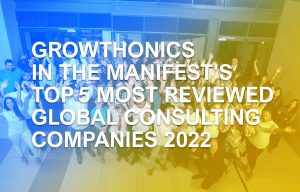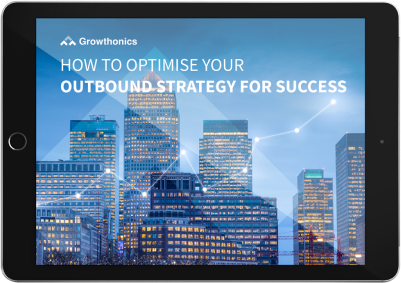What Is CRM?
John O'Shea
Marketing automation software has been on an evolutionary path over the past few years. We can confidently say that they have morphed from a simple concept to complex platforms that are easy to learn and implement, making them an indispensable sales productivity for B2B businesses of all sizes.
According to the 2021 HubSpot State of Marketing Report, about 62% of marketers leverage CRM software for their marketing reporting.
At the very basic, a CRM system gathers data from your customer interactions across all your communications channels in a central place. Having this centralised database will improve the level of customer satisfaction, enhance customer experience, boost customer service, and increase customer retention.
This is critical in driving growth and increasing your revenue.
What Does CRM Stand For?
CRM is the abbreviation for ‘Customer Relationship Management’.
This is the technology that business owners use for tracking and managing customer interactions with existing clients and new leads for enhanced efficiency. Having a customer relationship management system eliminates the need for multiple databases, spreadsheets and applications that are useful in collating customer data.
Most importantly, it eliminates guesswork from your sales cycle.
Although CRM software is designed to make work easier for your sales team through contact management, they are expanding to managing relations between vendors, team members, collaborators and partners.

What is a CRM System?
A good CRM system will merge all the data you capture from customers and sales leads through text messages, emails, meetings, online forms, purchases, quotes, and phone calls in a centralised location.
Your sales teams can access this information promptly whenever they need to deliver outstanding service or close a sale. CRM software is vital in helping you;
- • Streamline processes
- • Build customer relationships
- • Improve the efficiency of your sales team
- • Enhance time management.
As a result, you’ll have satisfied clients, an increase in sales, better sales team efficiency, better customer service, better efficiency and increased profitability.
What does a CRM System Do?
A customer relationship management tool is instrumental in sales force automations and marketing campaigns that begin with contact management. Before you compare a CRM to a spreadsheet, it’s important to know the latter has expanded features and functionality that make it suitable for processing dynamic data.
CRM systems will pull important customer information from voice mails, email and other channels to help you win more customers and keep existing ones. They offer you a central location to organise business processes and workflows, letting you close more deals, collaborate, and get more done.
A CRM platform is also pivotal to successful lead scoring.
Customer relationship management systems process and automatically update complex data like the pages your customers and leads have visited on your website, the emails they’ve opened and the last purchase. By looking at your CRM platform, you can tell if a lead is cold or hot with lead scoring.
You can set rules to determine the customer information that the CRM will capture about the actions of your lead. This can be anything from clicking a link to submitting a form. With this data, your sales teams can easily identify the hottest leads to focus on.
What are the Four Types of CRM?
At the core of any customer relationship management CRM are deals and leads. CRM software lets you track potential customers by collating their information to help you convince them to use your product or service so you can turn leads to deals.
Here are the 4 types of CRM systems at a glance:
- 1. Operational CRM. Besides the general CRM software functions, an operational CRM platform will focus on automations so you can streamline your sales process and track touchpoints through the sales cycle to manage customer relationships.
- 2. Analytical CRM. This CRM software emphasises on reporting and analytics. It’s great because you need to analyse customer data you can use to improve sales efforts, marketing campaigns and customer support effectiveness.
- 3. Collaborative CRM. This customer relationship management CRM platform will give your sales and marketing teams access to up-to-date customer data in real time. This captures information on purchases and previous communication with the customer so anyone can pull the records to better understand customer interests and needs.
4. Marketing CRM. A marketing CRM incorporates marketing features in the software. This will include automated workflows that can tag a lead as being interested when they open at least four emails you’ve sent to serve as a notification that they need to bring in a personal touch. Although this CRM is expensive compared to the other three, it’s an indispensable tool in your marketing campaigns for closing sales faster.
What are the main benefits of CRM software?
- 1. Improves customer service
Your CRM will manage all contact and aggregate customer and lead information to create profiles that help you gain better understanding of customer behaviour across different channels. With this, you eliminate the possibility of customers repeating stories while being able to address issues based on based practices, thus improving customer loyalty.
- 2. Increase in sales
A CRM lets you improve and streamline your sales process, automate tasks, build a sales pipeline, and analyse your sales data in one place. The result is an increase in sales. A CRM merges all your customer facing chat, voice and email touchpoints in a central location. This makes it possible to build a proven, repeatable sales process and deliver the right message for the right channel at the opportune time.
- 3. Better analytics
Analytical CRM tools help you make sense of your data. They not only make the data available relevant but also intelligible for your business needs. With all your finance, sales and marketing data flowing into the CRM for easy visualisation, you can make sense of it all with data mining and warehousing . This will make your customer acquisition and customer retention easy.
- 4. Customer retention
Customer churn is an impediment to the growth of your business. CRM tools like automated ticketing, sentiment analysis and customer support will improve your retention rate dramatically. According to findings of the 2021 survey, 82% of respondents use CRM systems to enhance customer retention. You can use analytics tools to understand where churn happens in the customer life cycle and why to better address pain points.
- 5. More transparency
The absence of information and miscommunication are time wasters. Using collaborative CRM tools eliminates the possibility of your sales reps learning what other sales team members already know, because you can rely on a trusted knowledge base to establish best practices.
- 6. High efficiency
Consolidating all business functions in one place enhances better workflow, better project management and easier collaboration among team members. Automating tasks eliminates repetitive menial work while paving the way for you to gain better insight into your work so you can optimise as many processes as possible.
Why is Cloud-Based CRM Better?
A CRM system can either be on-premise or cloud-based. Investing in an on-premise CRM means purchasing licences and getting the customer relationship management software installed on your company’s servers. This is a good choice if you’re strict with your security policy. Implementation will require IT resources and time.
Cloud-based CRM systems give you unlimited access to the database wherever you are. The vendor undertakes to ensure seamless operations while also providing support and updates when needed. A cloud-based customer relationship management CRM is highly scalable, meaning you can easily expand the functionality with growing business needs.
A cloud based CRM platform comes with multiple benefits that include:
- • Automatic software updates
- • Faster deployment
- • Reduced costs while being able to scale faster
- • Increased collaboration
- • Sales and marketing teams can work anywhere on any device.
The convergence of CRM solutions and cloud computing has steered significant growth in the management of business processes. Although there isn’t a one-size-fits-all option, there are many types of good CRM solutions that are tailored to meet the unique needs of each business.
Your CRM software should improve how you manage customer relationships with customers by giving you an all-round view of the customer by capturing all their engagements with your business and leveraging information that would enhance conversations with customers. Your CRM system should work the way your business works to guarantee customer satisfaction.
Are you interested in which lead generation strategies might work best for your business? Contact the Growthonics team today.
Subscribe to our mailing list
Find out how we can help
Our Offices
China Works,
Black Prince Road, Vauxhall,
London, SE1 7SJ
GROWTHONICS © 2022 ALL RIGHTS RESERVED






